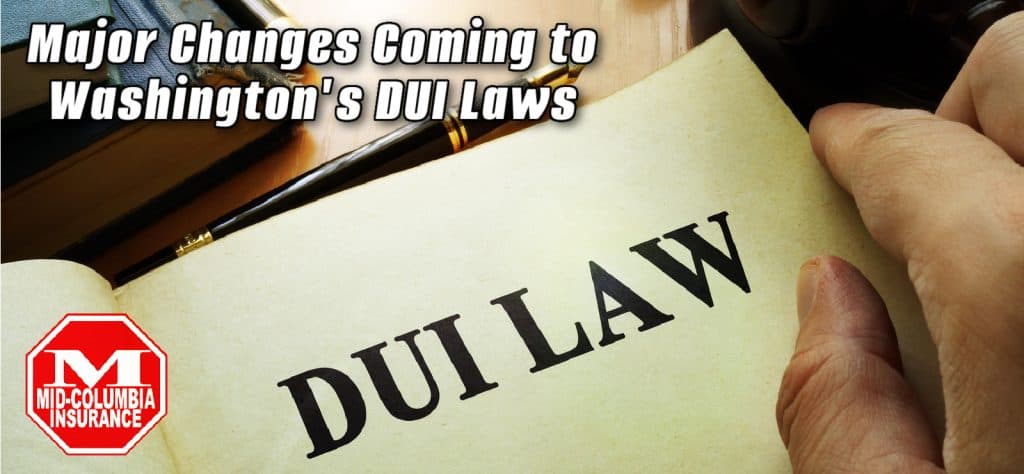
Washington state is making significant changes to its driving under the influence (DUI) laws that will go into effect on January 1, 2026. Engrossed Substitute House Bill 1493 (ESHB 1493), which passed the legislature in the 2024 session, institutes a new sentencing option for some felony DUIs, extends look back periods, allows second deferred prosecutions in certain cases, and authorizes the use of oral fluid testing by law enforcement. The goal is to reduce recidivism among impaired drivers while still holding offenders accountable.
New Drug Offender Sentencing Alternative Available for Some Felony DUIs
One of the key changes is the creation of a “drug offender sentencing alternative for driving under the influence” (DOSA-DUI). This allows judges to impose reduced prison sentences along with substance use disorder treatment for offenders convicted of a felony DUI (RCW 46.61.502(6)) or felony physical control of a vehicle under the influence (RCW 46.61.504(6)), as long as the offender meets certain eligibility criteria.
To qualify for the DOSA-DUI, the offender:
- Cannot have any prior convictions for vehicular homicide or vehicular assault while under the influence
- The current offense must have involved alcohol and/or drugs
- The mid-point of the standard sentencing range must be 26 months or less (or both parties agree if higher)
If imposed, the DOSA-DUI sentence consists of:
- Reduced term of total confinement (prison)
- Substance use disorder treatment
- Up to 6 months in a residential treatment facility
- 12 months partial confinement (work release and home detention)
- 12 months of community custody (supervision)
The court can revoke the alternative sentence and impose the original prison term if the offender violates the conditions or fails to make progress in treatment.
Longer Look Back Period for Prior Offenses
ESHB 1493 also extends the “look back” period for prior convictions that elevate a DUI charge from a gross misdemeanor to a felony. Currently, a DUI becomes a felony upon the 4th conviction within 10 years. Under the new law, it will be the 4th conviction within 15 years.
According to the bill, this change was made because research shows “that repeat DUI offenders with four or more arrests for an alcohol-related traffic violation within ten years are at a substantially higher risk of being involved in a fatal crash compared to drivers with no prior DUIs.”
Some DUI Defendants Can Get a Second Deferred Prosecution
Another major change allows some defendants charged with a misdemeanor DUI or physical control to petition for a second deferred prosecution, as long as they successfully completed a deferred prosecution for a previous DUI at least seven years prior and have no other DUI convictions since then.
Deferred prosecution allows defendants to avoid a DUI conviction by completing an intensive 2-year substance use disorder treatment program and other conditions. Currently, defendants are limited to one deferred prosecution per lifetime. The rationale for allowing a second chance is that relapses are often part of the recovery process.
However, certain repeat offenders are still ineligible for any deferred prosecution, including those with:
- Prior vehicular homicide or assault convictions
- Prior felony DUI convictions
- A deferred prosecution for a DUI within the past 7 years
Law Enforcement Authorized to Use Oral Fluid Testing in DUI Investigations
Lastly, ESHB 1493 permits law enforcement to use oral fluid testing as part of DUI investigations starting in 2026. The legislation states that this “roadside information” tool is optional for suspects and cannot be used as evidence in court.
Specific requirements include:
| Requirement | Description |
|---|---|
| Valid & reliable tests | Only oral fluid test instruments that are proven valid and reliable may be used |
| Officer training | Officers must receive training on proper test administration before use |
| Consent warnings | Prior to the test, officers must advise subjects that it is voluntary, results can’t be used in court, and it does not replace evidential breath/blood tests |
| Protections for DNA & personal info | Agencies must have policies to destroy biological samples promptly and prohibit improper sharing of DNA/test results |
The bill makes law enforcement “strictly liable” for any failures to destroy samples within 24 hours or improper entry of DNA into databases.
Modifications to Existing DUI Penalties and Procedures
ESHB 1493 makes additional changes to impaired driving laws related to sentencing, supervision, treatment, driver’s licensing, and more – mostly conforming provisions to account for the new DOSA-DUI program and extended look back periods.
In summary, this omnibus legislation significantly revises Washington’s approach to handling DUIs, especially repeat offenders, with the aim of improving long-term traffic safety outcomes. The delayed effective date provides time for the legal system and state agencies to prepare for implementation.
Mid-Columbia Insurance
– Your Trusted Insurance Agent
Call (509)783-5600 and speak to one of our independent insurance agent professionals today, or click “Get a Quote” to request an insurance quote.
The insurance you want — At a price you can afford.
